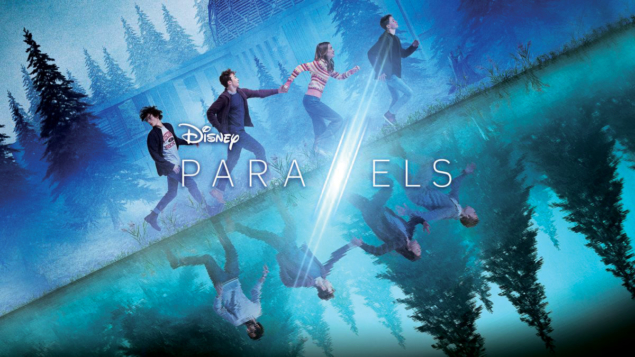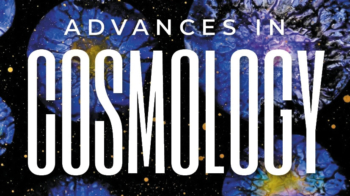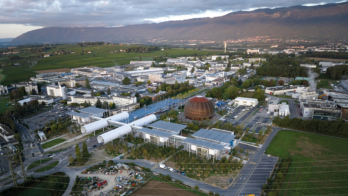Parallels, directed by Benjamin Rocher and Jean-Baptiste Saurel and screened on Disney+

Released in March 2022 on Disney+, Parallels merges two of the most popular concepts in science fiction: time travel and the multiverse. The series, in French, created by Quoc Dan Trang and directed by Benjamin Rocher and Jean-Baptiste Saurel, is set in a village in the mountains of the French–Swiss border where a particle-physics laboratory called “ERN” and a collider strongly resembling the LHC have a major role.
The story begins with a group of four friends who recently graduated from middle school celebrating one of their birthdays near an area where, 10 years earlier, a kid called Hugo disappeared. At the same time, ERN is performing an experiment with its particle accelerator. However, something goes wrong. The lights go out in the village, while a strange space–time phenomenon unfolds, transporting the teenagers to different timelines once the lights are restored. Does this have anything to do with the particle accelerator? Where, or rather “when” are they? Each of the teenagers tries to unravel their temporal confusion in an attempt to return to their original timeline.
Parallels offers a chance to go beyond fiction and explore the often even more incredible ideas explored for real in particle physics
Although the age of the main characters targets younger audiences, Parallels addresses topics such as depression, regret and family issues, which, combined with some humour, make it relevant to other age groups. The visual effects and music create a suspenseful atmosphere and the compact nature of the series (six episodes of around 35 minutes each) draws the viewer into watching it in a single session.
CERN’s experiments and locations are referenced several times throughout, ranging from visual details in the ERN buildings to mentions of ATLAS, CMS and the Antiproton Decelerator – going so far as to reference an “FCC scheduled for operations in October 2025”. The Globe of Science and Innovation and the CMS silicon tracker are also represented.
Many of the concepts introduced, especially those related to the LHC experiments, are not scientifically accurate. The clear depiction of CERN in all but name may also make some physicists feel uncomfortable, given that the plot plays on YouTube-based conspiracy theories about what CERN’s experiments are capable of. For young science-fiction lovers, however, and especially for those who love to unravel temporal paradoxes, as in the popular Netflix series Stranger Things, Parallels is worth a look. For the more inquisitive and open-minded viewer, it also offers a chance to go beyond fiction and explore the often even more incredible ideas explored for real in particle physics.





